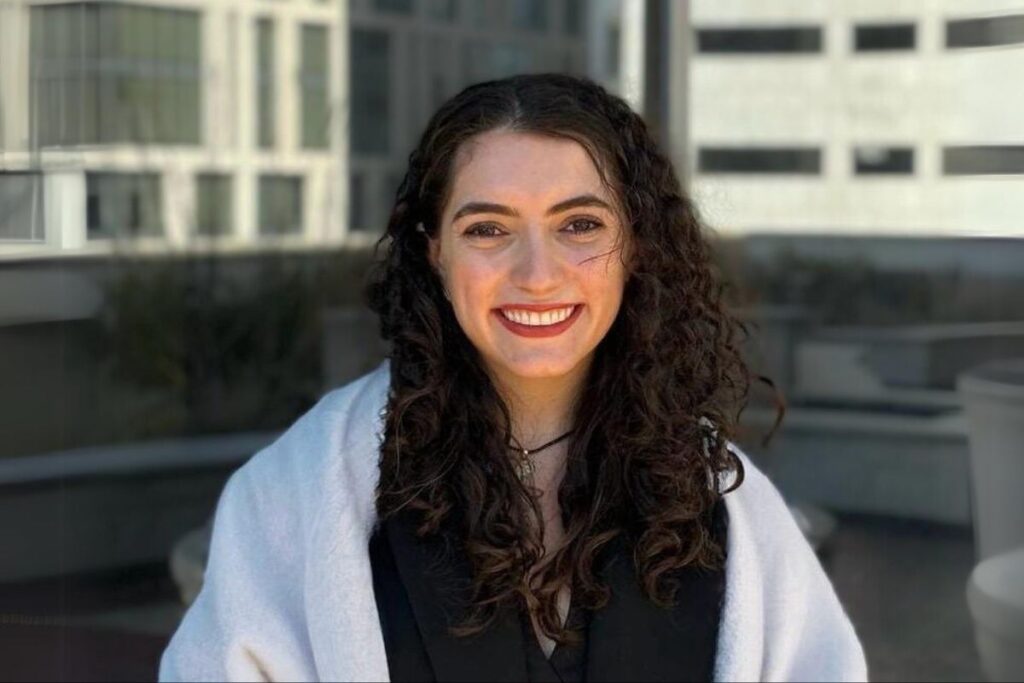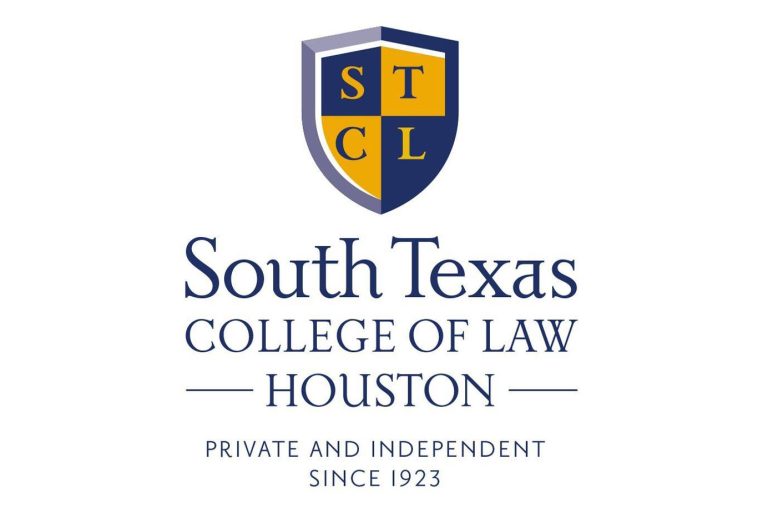During the month of April, South Texas College of Law Houston commemorates Arab American Heritage Month with student stories that highlight diverse cultural contributions of the Arab American community. As an institution committed to fostering inclusion and amplifying the voices of all within our community, we recognize this month as an opportunity to celebrate and honor the heritage, traditions, and achievements of Arab Americans.
Nationally, Arab American Heritage Month is observed throughout April, which began as a 2017 initiative that only involved a few states and cities, but recognition has been steadily spreading since then, and in April 2021, President Biden became the first U.S. president to issue a proclamation acknowledging Arab American Heritage Month. Read our first feature this month here: Humam Daas, 3L
Maud Laya Hage, 2L
I’m a second-year spring start at South Texas College of Law Houston, set to graduate in December 2025. I’ve immersed myself in several campus organizations; however, my focus is on Students for Justice in Palestine (SJP), which I co-founded and now serve as vice president.
Since SJP’s establishment in February 2024, the organization has rapidly advanced, and I’m deeply proud of our recent achievements in educating students and raising awareness about the situation through the eyes of people from the region.
Originally from Lebanon, I grew up in Baton Rouge, La. I earned my undergraduate degree in political science with minors in Arabic and international studies at Louisiana State University. Following my undergraduate studies, I pursued a master’s degree in criminology and justice from Loyola University New Orleans.
What prompted your decision to pursue a legal education at STCL Houston?
Growing up in a Lebanese household, career options were confined to doctor, lawyer, or engineer. Despite my father’s hopes for me to follow his path in engineering, I leaned toward pediatric medicine initially, drawn by my love for children and decent abilities in science and math. However, upon entering LSU as a pre-med major, I realized my true passion is serving others and not medicine, prompting a shift to political science with aspirations for law school. During my undergraduate years, I explored the legal profession through internships but was not sure if I wanted to pursue law school just yet. This led me to New Orleans, where I worked at a law firm specializing in bankruptcy while pursuing a master’s in criminology and justice.
Recognizing the importance of expanding my opportunities beyond Louisiana, especially as an Arab woman in law, I secured a position at a large Houston law firm during the COVID-19 pandemic. Two years as a legal assistant there reinforced my passion for law, affirming my choice to pursue legal studies at STCL Houston. I chose South Texas Law for its esteemed reputation and commitment to diversity, as a dedicated institution solely focused on legal education. These attributes were pivotal in my decision-making process.
Reflecting on your time at South Texas, what accomplishments or involvements bring you the most pride, and why?
One of my most significant accomplishments at STCL Houston has been the establishment of our Students for Justice in Palestine chapter. This initiative holds profound personal significance for me. It allows me to shed light on the longstanding issues affecting Palestinians and many Lebanese people whose lives have been transformed by the decades-long conflict. By founding this chapter, I aimed to provide a platform for my community’s voice and perspective, offering a unique insight into the realities of the Middle East that are often overlooked.
How do you believe Arab culture and perspectives are represented within the student body at STCL Houston?
I believe there’s a need for greater representation of Arab culture and perspectives among students, considering recent events such as the ongoing situation in the Middle East. Increasing Arab diversity would enrich the educational experience by offering unique insights into Middle Eastern culture, history, and current events, fostering a more inclusive learning environment at the law school.
What aspects of your experience at STCL Houston have you found most fulfilling thus far? Are there any specific courses or professors that have left a lasting impression on you? If so, what distinguishes them?
One of the most fulfilling aspects of my experience at STCL Houston has been the friendships I’ve cultivated. Sharing similar stressful experiences with classmates has created a supportive network that has been invaluable throughout my journey. I’ve been fortunate to be part of a section characterized by kindness and mutual support, making my learning environment even more enriching.
While nearly every professor at STCL Houston has demonstrated kindness and dedication to student success, two have left a particularly lasting impression on me: Professors Moore and Yamamoto. Professor Moore stands out as an epitome of kindness and care. Despite her busy schedule, she ensures that every student receives the support they need to succeed. Her dedication to her students and diversity is truly inspiring, and I am grateful for her mentorship.
I was pleasantly surprised by Professor Yamamoto’s Federal Income Tax class. Despite my initial apprehension about the subject, his teaching approach and the no-electronics rule fostered an engaging learning environment. His humor and genuine concern for students’ understanding make his lectures enjoyable, and I eagerly anticipate each class session.
Could you share a bit about your family background and life beyond the realm of law school?
One of my favorite things to do is share my own cultural background, while learning about others. I spend most of my summers in Lebanon, and I am very thankful for being able to continuously go back home to experience the Lebanese lifestyle firsthand. Contrary to stereotypes perpetuated in Western media, Lebanon challenges the notion that all Arabs and Middle Easterners are Muslims and conservative, showcasing instead a rich tapestry of cultures. Lebanon, known for its diversity, natural beauty, and vibrant religious traditions, stands out as the most modern country in the Middle East. Additionally, Lebanon’s diverse religious demographic, including Christians, Muslims, and Druze, showcases remarkable coexistence in the region. My family is personally rooted in the Maronite Christian community; even so, we still embrace other customs and hold mutual respect for every religion in the region.
My family’s journey to the United States began in 1996, when I was born, and was driven by the economic and political uncertainties in Lebanon. Despite my father’s qualifications — a bachelor’s and master’s degrees in engineering from the University of Michigan — securing a job in South Louisiana was no easy accomplishment for an immigrant. His decision to uproot our lives to a foreign country and leave his home for the promise of a better future speaks volumes about his sacrifice and determination to provide us with opportunities he envisioned would be scarce in Lebanon’s future. My mother, too, exhibited tremendous resilience, transitioning from her career as a teacher to navigate raising three children in a foreign country. Her recent return to teaching after years of prioritizing our family exemplifies her unwavering commitment to personal growth and fulfillment at any stage of life.
I am so grateful for that decision because it brought me to where my siblings and I are today. My family members are beacons of inspiration and strength. Without my family along my side, I would be nothing. Every ounce of success and happiness in my life is due to my family and their support.
Are there any specific Arab American leaders or figures in the legal profession who have inspired you, and why?
There are numerous Arab American leaders and legal professionals who have inspired me. Ralph Nader, a Lebanese American advocate and attorney, stands out for his lifelong commitment to social justice. His advocacy efforts, spanning from consumer protection to Middle Eastern policies, exemplify his dedication to making positive change.
Noura Erakat, a prominent Palestinian-American human rights attorney and scholar, has made significant contributions to raising awareness about Palestinian rights and advocating for justice. Her expertise in international law and tireless advocacy efforts highlight the power of legal expertise in advancing social justice causes.
Additionally, Charlene Mekled Elder, a Lebanese American woman, made history in 2006 when she was appointed to the 3rd Circuit Court in Michigan. As the first Muslim female judge in the United States and the first Arab American judge fluent in Arabic, her achievements break barriers and inspire Arab women globally.
Through their various contributions, these leaders have not only advanced the cause of justice but have also paved the way for future generations of Arab American lawyers to make their mark in the legal profession and beyond.
In what ways do you believe the legal profession can better accommodate and advocate for Arab American individuals and communities?
The legal profession can better accommodate and advocate for Arab American individuals and communities by prioritizing increased representation within law firms and organizations, fostering inclusive workplace environments, and providing cultural competence training to legal professionals. Language access services should be readily available to ensure effective communication for Arab and other foreign individuals, and efforts to address bias and discrimination within the profession must be actively pursued. Engaging with Arab American communities through outreach programs and partnerships, as well as advocating for policy reforms that address systemic barriers and inequities, are essential steps toward promoting justice and equality for all.
What are your post-graduation plans?
This summer, I’m embarking on a summer clerkship at Stibbs and Co., and I aspire to continue my journey with them in the future. While my initial interest lies in transactional work, particularly in the realm of intellectual property law, I approach my career with an open mind and a willingness to explore various legal practices to find where my passion truly lies.



